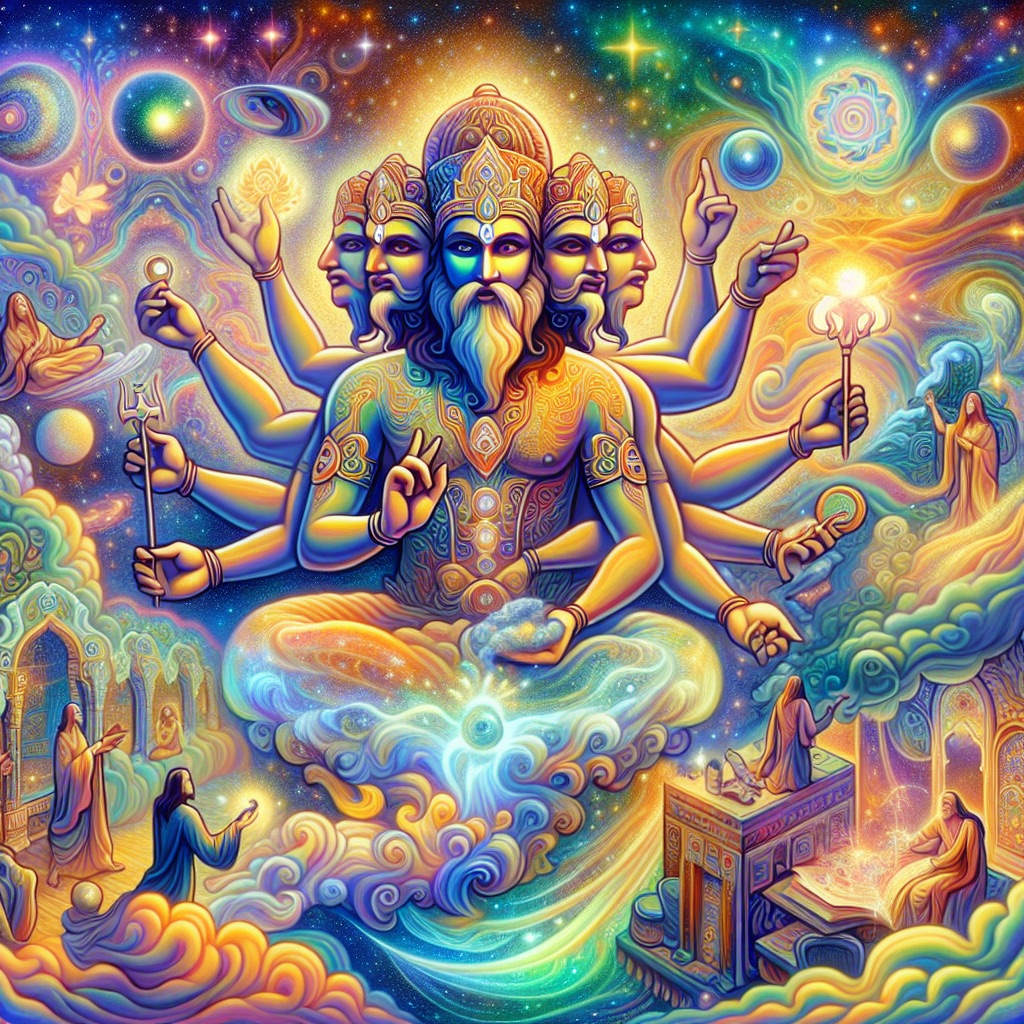Aitareya 1.1.1
In the beginning there was the self alone, and nothing to see. He thought, "let me release the worlds."
-
oṃ — sacred syllable Om
-
ātmā — the self
-
vā — indeed, even, like
-
idameka — this alone
-
idam — this
-
ekaḥ — one, alone, solitary
-
-
evāgra — foremost indeed
-
eva — indeed, certainly
-
agraḥ — foremost, first
-
-
āsīnnānyatkiṃcana — was not another whatsoever
-
āsīt — was
-
na — not
-
anyat — other, another
-
kiṃcana — whatever, however
The suffix cana makes the preceding interrogative indefinite. In the case of kiṃ, which means "what?" or "how?", the suffix changes it to "whatever" or "however".
-
-
miṣat — blinking
Miṣ (मिष्) refers to opening the eyes and blinking, and most translations use "blinking" or "winking". -
स
sa — He, it
-
īkṣata — thought
-
lokānnu — now the worlds
-
lokān — worlds
-
nu — now, indeed
-
-
sṛjā — let me release
-
iti — spoke thus
Indicator that the previous words were spoken.

